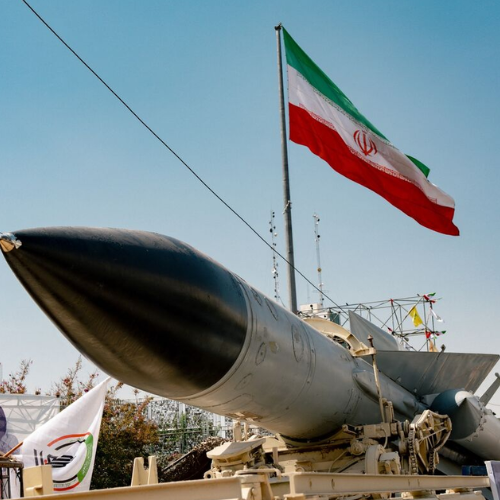The United States sanctioned several companies and individuals located in China, Hong Kong, and Iran. These sanctions target people and businesses that have been helping Iran build materials for its dangerous ballistic missile program. This move is part of a broader plan by the U.S. government to prevent Iran from developing weapons that could threaten other countries, especially in the Middle East.
The U.S. Department of the Treasury stated that these Chinese and Hong Kong-based companies were working with Iran’s Islamic Revolutionary Guard Corps (IRGC). The IRGC, especially its research branches like the IRGC Aerospace Force Research and Self Sufficiency Jihad Organization (ASF RSSJO), has been leading Iran’s missile development efforts. By supporting this work, the foreign firms are helping Iran build weapons that can fly long distances and cause major destruction.
The sanctions were made under Executive Order 13382, a U.S. law that focuses on stopping the spread of weapons of mass destruction and the people or organizations that help with them.
U.S. Accuses Russia of Sabotaging UN Sanctions to Fuel War With North Korea’s Missiles
Carbon Fiber: The Critical Ingredient
The U.S. government focused this latest round of sanctions on materials that Iran needs to build more advanced missiles. One of the most important of these materials is carbon fiber. This is not something you’d find in everyday clothing. Carbon fiber is an ultra-strong and ultra-light material used in making aircraft, racing cars, and more dangerously—missile bodies.
Iran wants to produce this high-tech material on its own, a process known as indigenization. To do that, it needs raw materials, machinery, and technical support. That’s where these Chinese and Hong Kong companies come in.
The U.S. has named Zhejiang Qingji, a China-based company, as one of the main suppliers of high-end centrifuges and carbon fiber-related equipment to Iran. The company has reportedly sold this machinery to an Iranian entity tied to the country’s defense ministry. To hide these transactions, Qingji used a front company based in Hong Kong called Lingoe Process Engineering Limited.
The U.S. Treasury also identified Davoud Damghani, Iran’s Defense Attaché in Beijing, as someone involved in arranging these purchases. He played a key role in helping Iranian buyers connect with suppliers in China.
Cutting the Supply Chain
The sanctions do more than just list names—they block access. Any money or assets the targeted people or companies hold in the U.S. are now frozen. In addition, American citizens and companies are now banned from doing any business with them.
Silent Sanctions Failure? Russia’s Banderol Missile Assembled with 23 Foreign Components
Other businesses around the world are also likely to steer clear. That’s because many global banks and companies don’t want to take the risk of violating U.S. laws, which could result in major fines or being cut off from the U.S. financial system altogether.
But this action wasn’t just about China and Hong Kong. In earlier steps taken just weeks before, the U.S. also named several other entities for providing parts used in missile motors and drones.
One Iran-based firm, Pishgam Electronic Safeh Company (PESC), and its CEO Hamid Reza Janghorbani were sanctioned for buying servomotors used in military drones. A company in Hong Kong, Hongkong Himark Electron Model Limited, along with its representative Fan Yang, were named for supplying those same motors to both Iran and the Houthis in Yemen.
These networks often use complicated routes—moving parts through several countries, using fake names for companies, and mislabeling goods—to avoid detection. But U.S. intelligence and financial agencies are actively tracking and exposing these efforts.
By announcing these sanctions, the United States is sending a strong and clear message: helping Iran build missiles will not go unnoticed. Whether it’s a company in Zhejiang or an office in Hong Kong, the U.S. is willing to act. These new sanctions are part of a continuing campaign to prevent Iran from gaining the tools it needs to build long-range weapons and to protect the stability of the Middle East.
The sanctions are also meant to show that the U.S. will go after not only Iranian actors but also those in third countries who support or enable Iran’s dangerous programs, no matter how far away they are.


